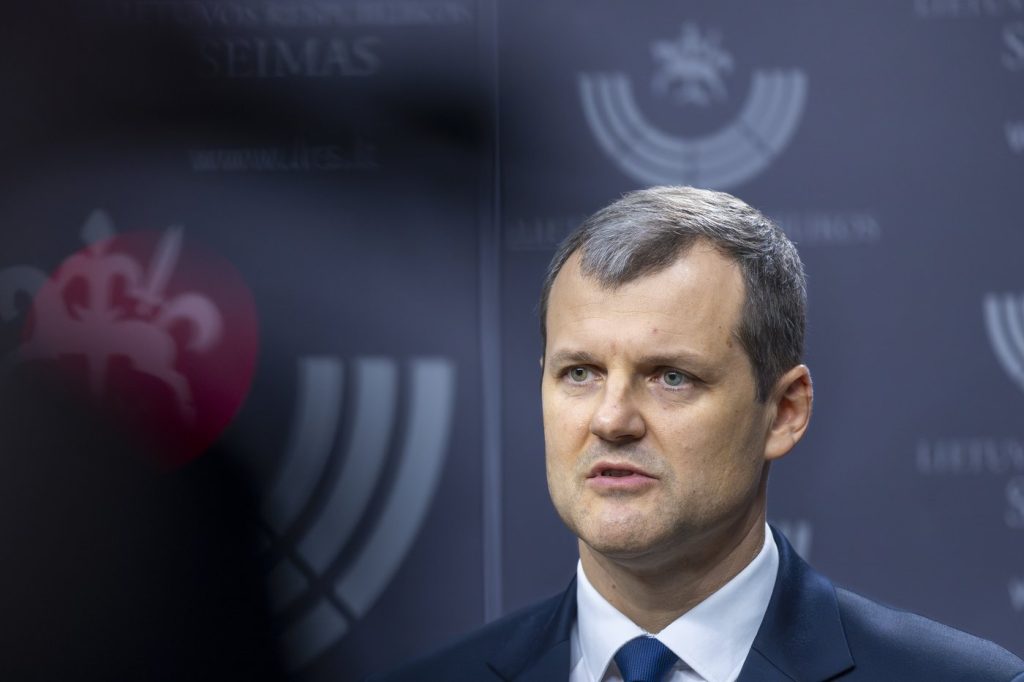VILNIUS, Lithuania (AP) — Lithuania's Prime Minister Gintautas Paluckas resigned on Thursday amid ongoing investigations into his business dealings, which had incited protests in the capital city calling for his resignation. President Gitanas Nauseda announced Paluckas' resignation to the press on Thursday morning. A spokesperson for Paluckas did not respond immediately to requests for comments.
Paluckas, who leads the center-left Social Democrats, emerged as Prime Minister late last year when a three-party coalition was formed following the parliamentary elections in October. His resignation now puts his entire cabinet at risk of also stepping down, potentially leaving Lithuania without a functional government just weeks before Russia conducts joint military exercises with neighboring Belarus.
Despite the governmental upheaval, it is expected that Lithuanian foreign policy will remain steady. As the country's representative on the international stage, President Nauseda has been a fierce supporter of Ukraine amid its ongoing conflict with Russia. His separate election means he continues to have significant influence over the nation's diplomatic relations.
Paluckas has faced scrutiny due to media investigations into both past and present financial dealings. Reports surfaced in July detailing allegations of mishandling and other controversial business practices. The nationalist climate intensified when Lithuania's anti-corruption and law enforcement agencies initiated their own probes into Paluckas’ dealings.
A pivotal aspect of Paluckas' decline was revelations regarding an unpaid portion of a 16,500 euro fine ($19,039) stemming from a 2012 criminal case commonly referred to as the "rat poison scandal." In this case, Paluckas was convicted of improperly managing the bidding process for rat extermination services while he was the director of Vilnius' municipality administration. The Supreme Court of Lithuania determined in 2012 that he had abused his official position by providing advantages to a company that submitted the highest bid.
Though he received a two-year prison sentence, it was suspended after one year and he was never incarcerated. Throughout this scandal, Paluckas denied any misconduct related to his business dealings, labeling the criticism as a "coordinated attack" from political adversaries. His resignation came just before opposition leaders could formally initiate impeachment proceedings against him.
In light of these developments, talks about forming a new coalition are set to begin shortly, which will be crucial for establishing a stable government in the coming weeks. The anticipated changes in the governmental structure place considerable weight on the future of Lithuanian leadership as the nation navigates both political and external pressures.











